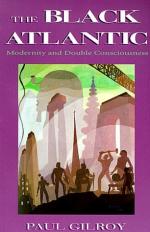
|
| Name: _________________________ | Period: ___________________ |
This test consists of 5 multiple choice questions, 5 short answer questions, and 10 short essay questions.
Multiple Choice Questions
1. Who first defined the notion of the master-slave dialectic?
(a) Emerson.
(b) Hegel.
(c) Nietzsche.
(d) Kant.
2. How does Gilroy characterize the pluralistic camp in black artistic circles?
(a) Skeptical.
(b) Divisive.
(c) Unifying.
(d) Intellectual.
3. What does Gilroy say led to Jimi Hendrix's triumph in the U.S.?
(a) His experiences in Africa.
(b) His success in Europe.
(c) His exposure to voodoo.
(d) His cosmopolitan culture.
4. Whose challenges does Gilroy take up in the first section of the chapter?
(a) Writers'.
(b) Cultural studies'.
(c) Ethnographers'.
(d) Black peoples'.
5. What does Gilroy say is the fact of racial life?
(a) Governments are heavily invested in maintaining the distinction between races.
(b) There are no clear boundaries between people.
(c) Races are strictly segregated in de facto fashion.
(d) Race is a matter of choice and identification.
Short Answer Questions
1. What kind of social relations does music create according to Gilroy?
2. What literary form does Gilroy say gave blacks access to self-creation?
3. How does Gilroy describe slavery's relation to western civilization?
4. What does Gilroy say postmodernism claims for itself?
5. What does Gilroy assert in opposition to these master-race intellectuals?
Short Essay Questions
1. Why is Martin Robison Delany important to Gilroy?
2. What are the two perspectives around which black artistic debate is centered, according to Gilroy?
3. What does Gilroy say most theorists of modernity focus on?
4. How does the uniqueness of the black Atlantic experience affect views of race according to Gilroy?
5. What is the master-slave dialectic?
6. What view does Gilroy say we should take of black experiences?
7. How does Gilroy define the consciousness of the slave?
8. What does Gilroy say British audiences expected from Jimi Hendrix?
9. What does the search for black roots indicate to Gilroy?
10. What has music done for black culture in Gilroy's account?
|
This section contains 802 words (approx. 3 pages at 300 words per page) |

|




